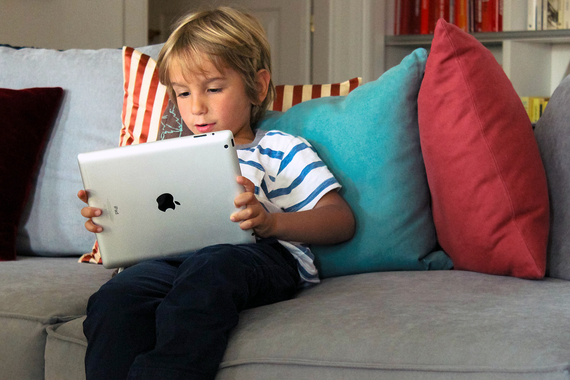
Last night while helping my 8-year-old son do his weekly spelling homework, my 5-year-old, always looking to divert attention his way, told me he'd learnt how to write the letters A and Z while playing an alphabet and phonics learning game on my tablet. "Would you like me to write the big or little A for you?" he asked grinning with self pride.
Until recently, there has been little empirical evidence to answer the question everyone's asking about whether these educational Apps kids love playing really do teach them anything. But now there is hard evidence they do.
A recent study conducted by New York University shows that a reading and phonics learning App had a measurable impact on the literacy of children.
Professor Susan Neuman, an NYU Professor of early education and former US Secretary of Education, led a randomised six-week study of 95 disadvantaged students across seven different Head Start classrooms in Brooklyn in the US and divided the students into small groups. All the 4 and 5 year old students were given an iPad with a popular reading and phonics learning App called Learn with Homer. Children were fully immersed in this iPad game with headphones for 15 minute intervals. Adults only entered the room to ensure the kids were playing on the iPad but did not give them any learning support so as not to influence the results of the trial.
After six weeks, the students who followed the iPad lessons showed marked differences in 86% of the phonological skills that were being measured. They particularly improved in 3 key areas: print knowledge. phonological awareness and letter sounds. These same students scored higher on their TOPEL (Test of Preschool Early Literacy) conducted after the trial than both groups did before the trial.
So there is mounting hard evidence that children are learning from these educational games on tablets. That said, I still restrict the amount of time my kids are allowed to play each day, as they would play until they become agitated if I didn't. However I am convinced that when good quality educational games are regulated by parents, they provide important extra home practice for skills children are learning at school.
